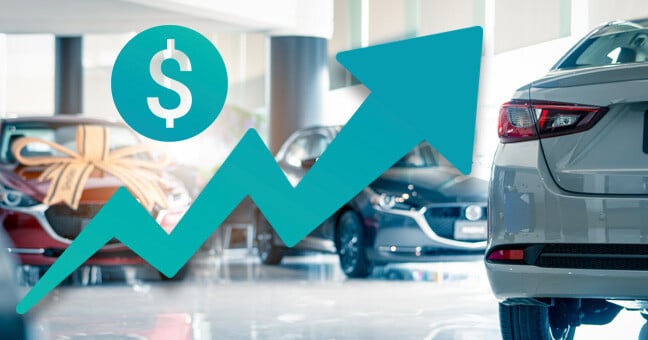

Dec 5 2024
There’s nothing like the smell of a brand-new car, but with the average cost of new vehicles now sitting at ~$50K, many consumers have opted for used vehicles as an alternative in recent years. New vehicle prices have spiked since the COVID-19 pandemic, with average transaction prices remaining nearly $11k higher than pre-pandemic back when average transaction prices for new vehicles were ~$37k. In this article, we will discuss some of the key drivers behind increased vehicle prices, how it has impacted the auto industry, and why a comprehensive vehicle data solution is even more important for the automotive businesses impacted.
While COVID-19 is now years removed from its peak disruption, the automotive industry is still adjusting to that era’s supply chain disruptions and increased raw material costs. This led many dealerships to continue the trend of selling new cars over MSRP. Additionally, used inventory is not as plentiful due to fewer trade-ins, driving up the cost of pre-owned vehicles as well.
The push towards EVs has also contributed to rising vehicle prices. While EVs have actually come down in price as production continues to ramp up and materials become more affordable, they are still more expensive to produce than their traditional ICE counterparts, driving up new vehicle cost averages.
Vehicle buyers have not only been impacted by the rise in vehicle costs (longer loan terms, higher monthly payments, limited pre-owned inventory, etc.), but businesses across the auto industry have also been impacted. Aside from vehicle retailers, one of the more notable businesses would be those in the auto repair space. Consumers are holding on to their vehicles for longer (~13.7 years on average for 2024), which has greatly benefited the auto repair industry with an increased need for more frequent maintenance and repairs as these vehicles age.
While the car lifecycle itself is extending, studies also show a growing popularity in higher mileage used vehicles. According to an iSeeCars study, there has been a 60% increase in cost for 10+ year-old cars. This is largely because technology has gotten so advanced (and expensive) over the years, and older vehicles are more desirable than they used to be. Conversely, consumers who prefer newer vehicles are extending their loan terms or making the shift toward EV/Hybrid in hopes of offsetting the upfront cost with incentives and less frequent vehicle maintenance requirements.
As demand for older used vehicles grows, leveraging a vehicle data provider that offers comprehensive data for older model years in addition to new models is essential. DataOne offers highly detailed data for vehicle models dating back 20+ years ago and 17-digit, option-level, VIN decoding for a large number of OEMs dating back 10+ years. This level of data is hugely beneficial for businesses dealing with the marketing, sale, insuring, servicing, etc., of these older pre-owned vehicles. Additionally, our OEM-recommended service schedule data and ACES mapping products will be helpful for the servicing and repair of these older vehicles.
Automotive organizations tasked with managing these high-cost newer vehicles, including hybrids and EVs, will also need access to option-level data and ADAS because the complex technology installed is highly specific, and very slight differences in capabilities for driver assistance and other options packages can mean a wide variance in associated costs and needed labor. A data provider that can deliver this data in an easily consumable format can streamline how these new vehicles are managed and made profitable within your organization.
Increases in new vehicle prices do not appear to be a trend that is reversing any time soon, and organizations across the automotive industry need to adapt to this long-term pivot. A successful adaptation to this automotive landscape will require a vehicle data provider that equally accommodates solutions to challenges associated with both older model vehicles and the latest advanced automotive technology.
Does your current vehicle data provider offer comprehensive solutions to support a much longer vehicle lifecycle? If not, DataOne would be happy to discuss your growing data needs!